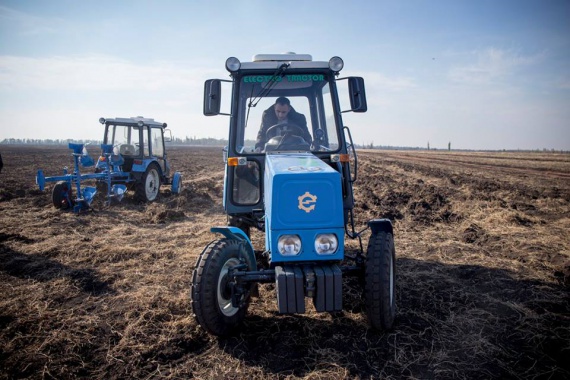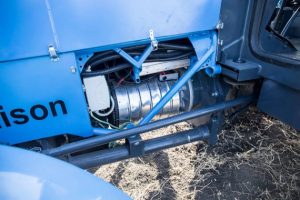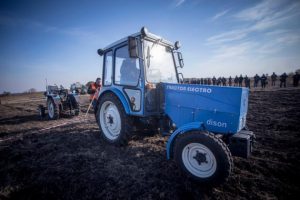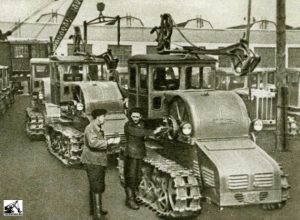During a tug-of-war contest using wire rope, the world’s first electric tractor defeated a 25-horsepower diesel tractor. The electric tractor, which runs on a battery-powered engine, can operate eight hours in transport mode and four hours in full load mode.
If the Tesla is conquering the world of electric vehicles, Kharkiv is targeting the electric tractor industry. In the next five years they are planning to manufacture a line of 25 to 400-horsepower electric tractors.
“This tractor is a joint development with the AvtoEnterprise Company and it’s the only one of its kind in the world. The tractor is equipped with a 40 kW lithium-ion battery and a 40-horsepower electric motor. Two to four hours are required to fully charge the battery. It can function up to eight hours in the transport mode and up to four hours in the full load mode.” says Vladyslav Hubin, CEO of the Kharkiv Tractor Plant.
The relatively small, 25-horsepower tractor runs on a lithium-ion battery and has electric transmission. It was manufactured at the Kharkiv Tractor Plant. It will be produced by Edison Motors. It is very unusual to watch a tractor that does not rumble, smoke or shake in its tracks.
An interesting fact - the first electric tractor was manufactured by the Kharkiv Tractor Plant in 1952, but due to the fact that Ukraine’s economy did not need them at that time, the factory produced only 32 units.
Such electrical technology will solve a major agricultural problem - dependence on oil and gas in rural villages. Villages will become more self-contained as villagers start producing their own energy. They will not need to rely on state authorities with their pseudo subsidies, banks with their pseudo loans or supermarkets with their pseudo convenient implementation programs. They will be able to produce and market independently and directly through online resources, which will increase their income and relieve them from dependence on long chains of dealers. Farmers will not receive 5%, but the legitimate 50-80%... just as it was 70 years ago, before the implementation of the global vertical distribution of resources. Agroholding companies will not be able to compete with them as they are not physically able to grow natural organic products containing no GMOs, mineral fertilizers and pesticides.






